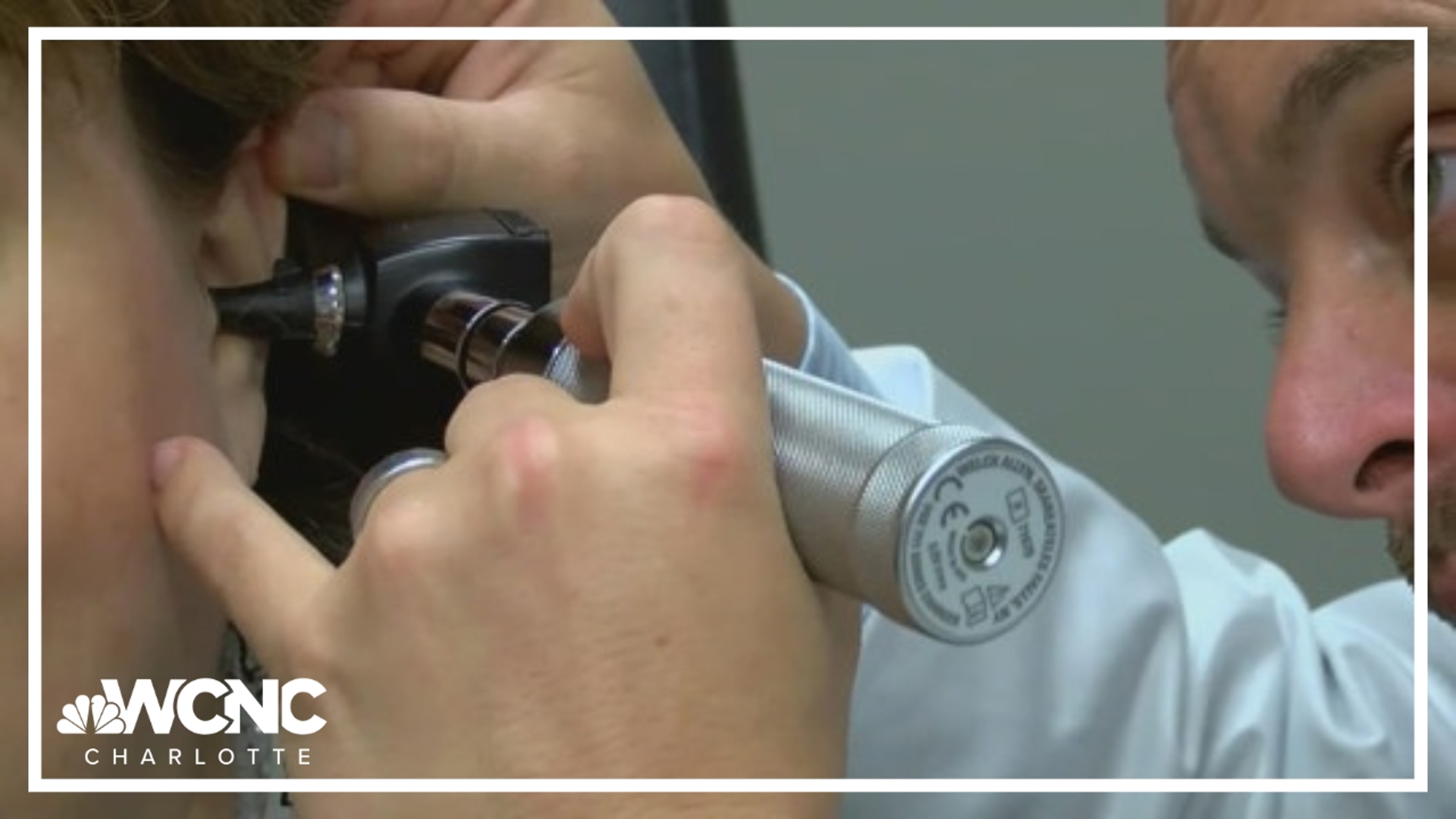CHARLOTTE, N.C. — With summer in full swing and many people watching Olympic swimmers compete in Paris, kids are likely to spend more time in the pool.
And while matching Michael Phelps or Katie Ledecky's accolades won't happen in the backyard, there are some very real concerns parents should have when their kids are swimming, including ear infections and swimmer's ear.
THE QUESTION
Can you tell the difference between swimmer's ear and an ear infection?
THE SOURCES
THE ANSWER
Yes, you can tell the difference between swimmer's ear and an ear infection.
WHAT WE FOUND
According to the Mayo Clinic, swimmer's ear is an infection in the outer ear canal, which runs from your eardrum to the outside of your head.
“Swimmer's ear, we think about as external ear infections, so the infection that affects the area where the water touches,” Zuzo said.
It's often brought on by water that remains in your ear, creating a moist environment that helps bacteria grow. Zuzo said there are clear symptoms of swimmer's ear that make it easy to diagnose.
"Usually they'll have some drainage coming out of there and it's quite tender and painful to touch," Zuzo explained.
Preventing and treating swimmer's ear is usually pretty simple.
"Older kids will tolerate putting ear drops and there are preventative drops you can use often," Zuzo said.
Younger kids can be more difficult because they're uncomfortable, but treatment is straightforward.
"Just dry their ears with a towel," Zuzo said. "If they will tolerate the noise of a hairdryer, you can put the hairdryer to a low setting and you can gently try to dry the ear."
Putting fingers, cotton swabs or other objects in your ears can also lead to swimmer's ear by damaging the thin layer of skin lining your ear canal.
When it comes to an actual ear infection, Zuzo said those aren't caused by water.
"Usually that type of ear infection will happen after cold symptoms for a week or two," she said. "In the majority of cases, you'll have some other symptoms like fever, not sleeping well, things like that."
Zuzo said that isn’t caused by water.
VERIFY is dedicated to helping the public distinguish between true and false information. The VERIFY team, with help from questions submitted by the audience, tracks the spread of stories or claims that need clarification or correction. Have something you want VERIFIED? Text us at 704-329-3600 or visit VERIFY.
WCNC Charlotte's Verify series is all about trying to make sure the community has the correct information on news that impacts them. WCNC Charlotte outlines concisely what we know and what we don't know. Sometimes the answer can be surprising. Watch previous stories where we verify social media claims in the YouTube playlist below and subscribe to get updated when new videos are uploaded.

